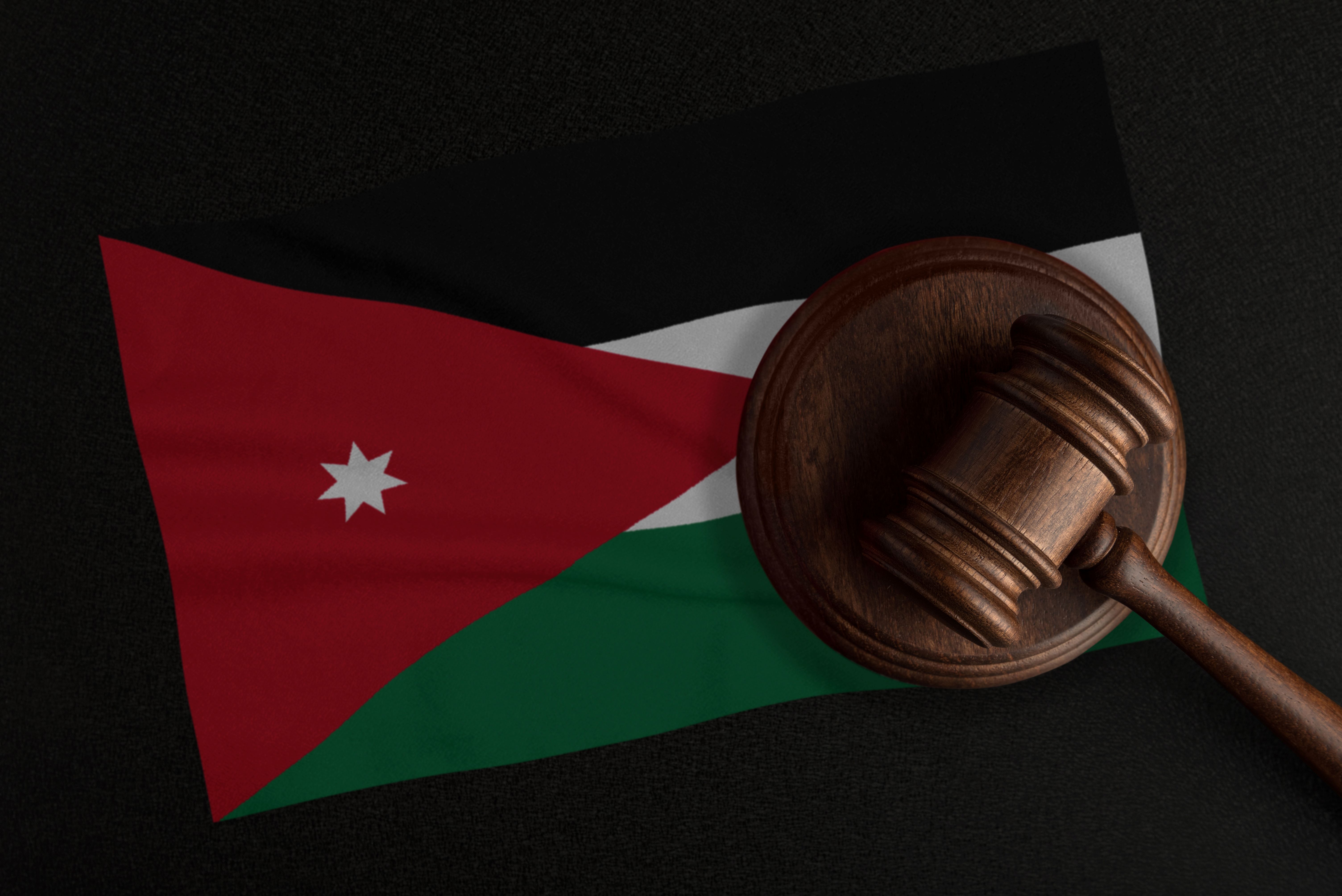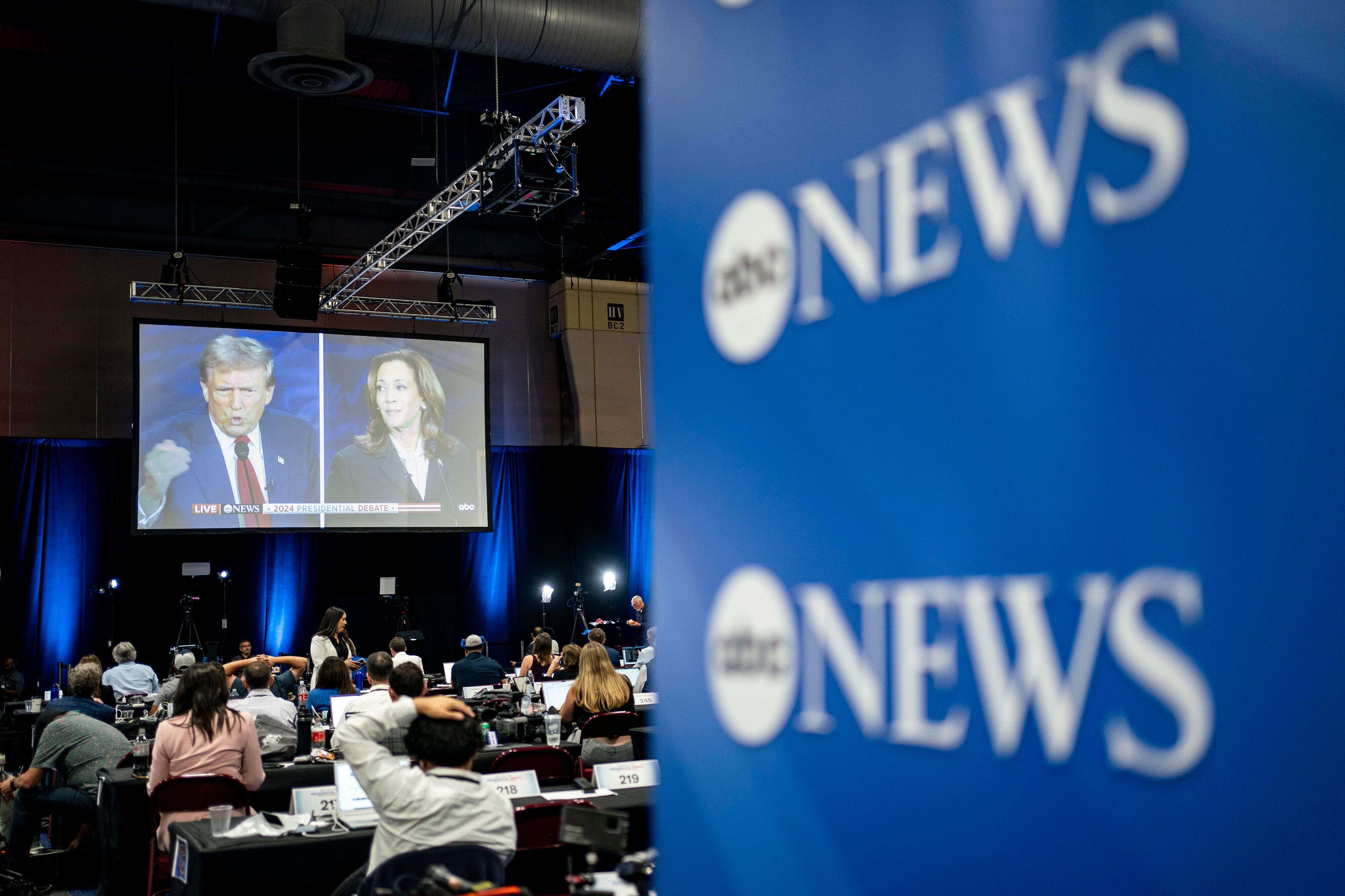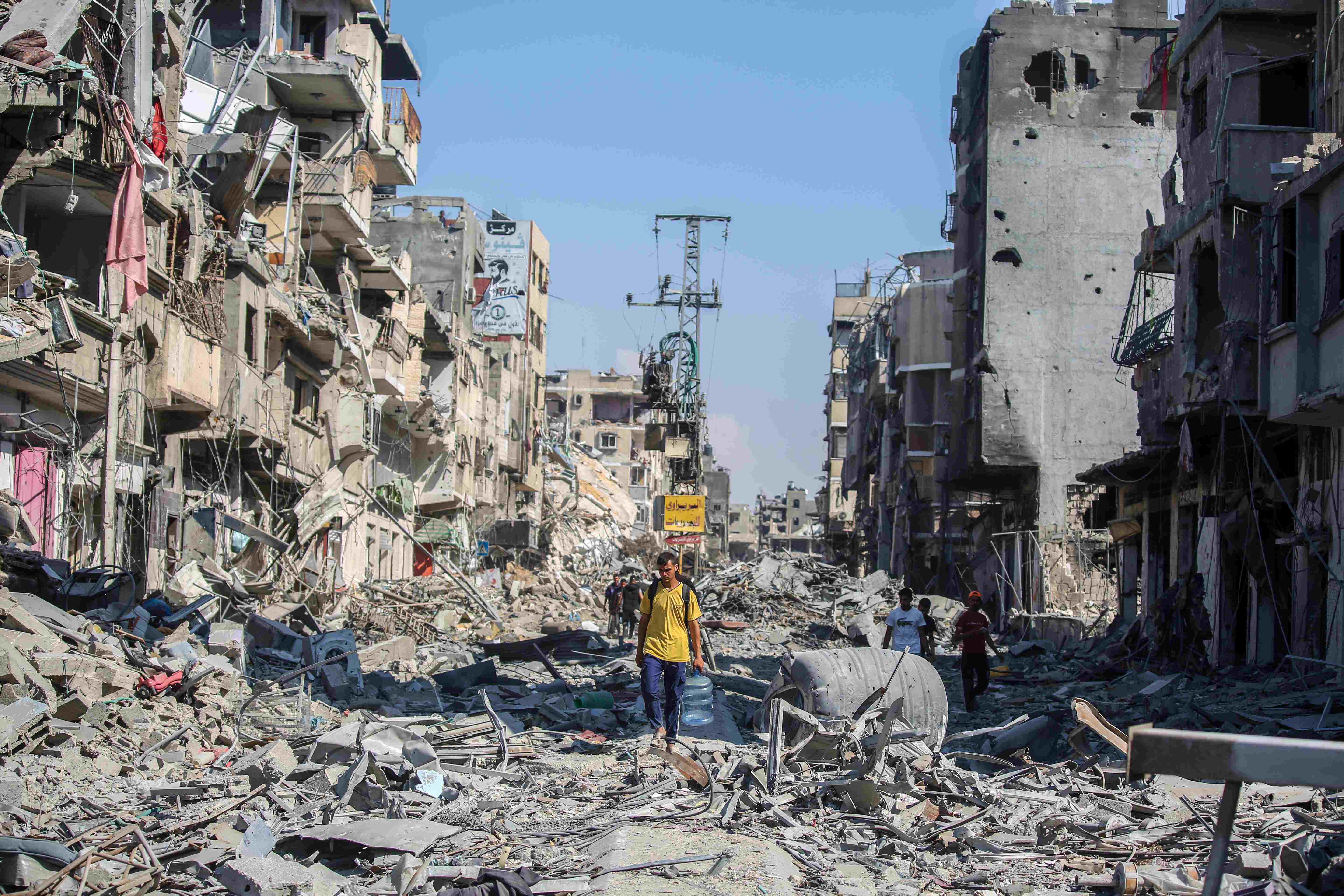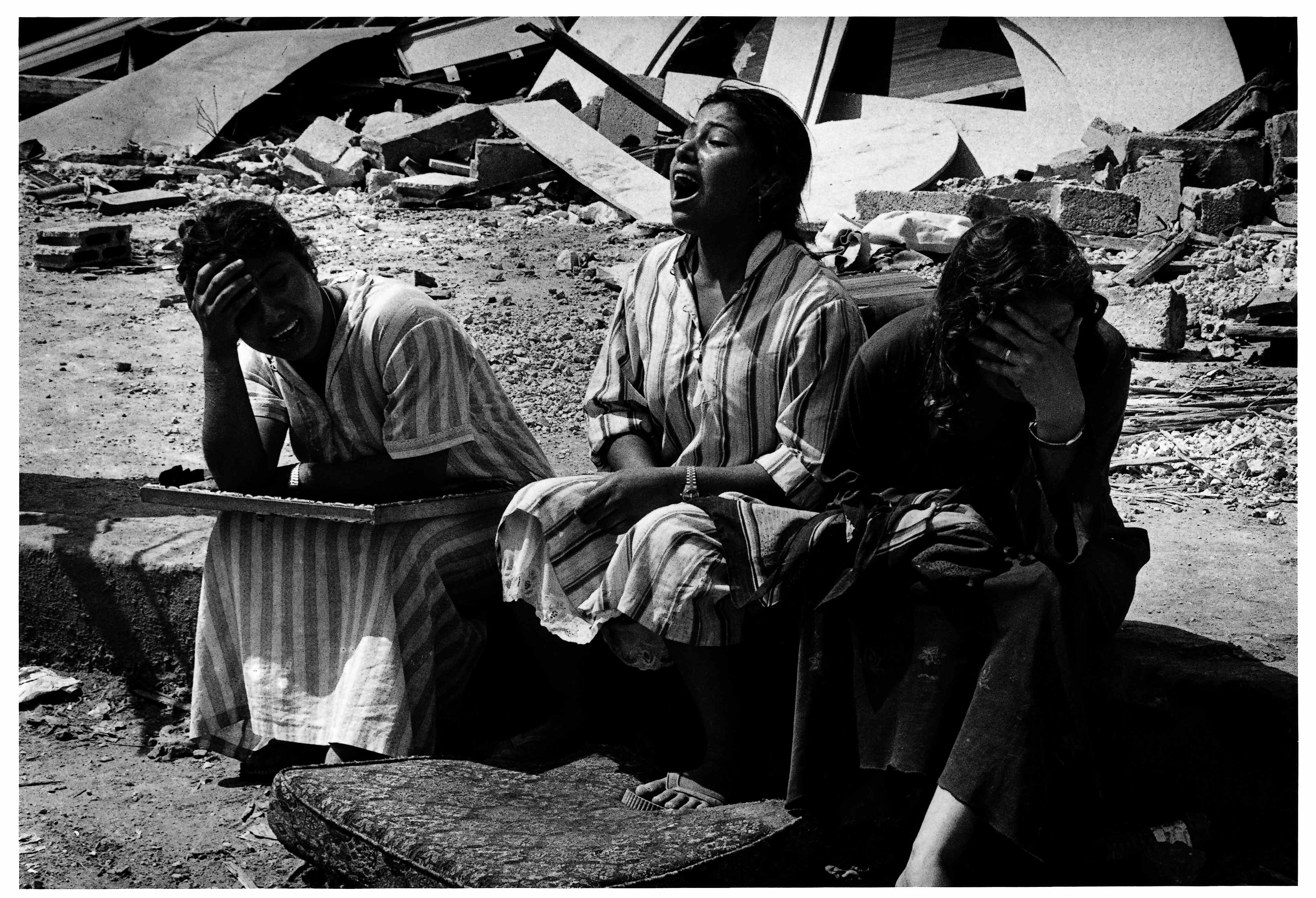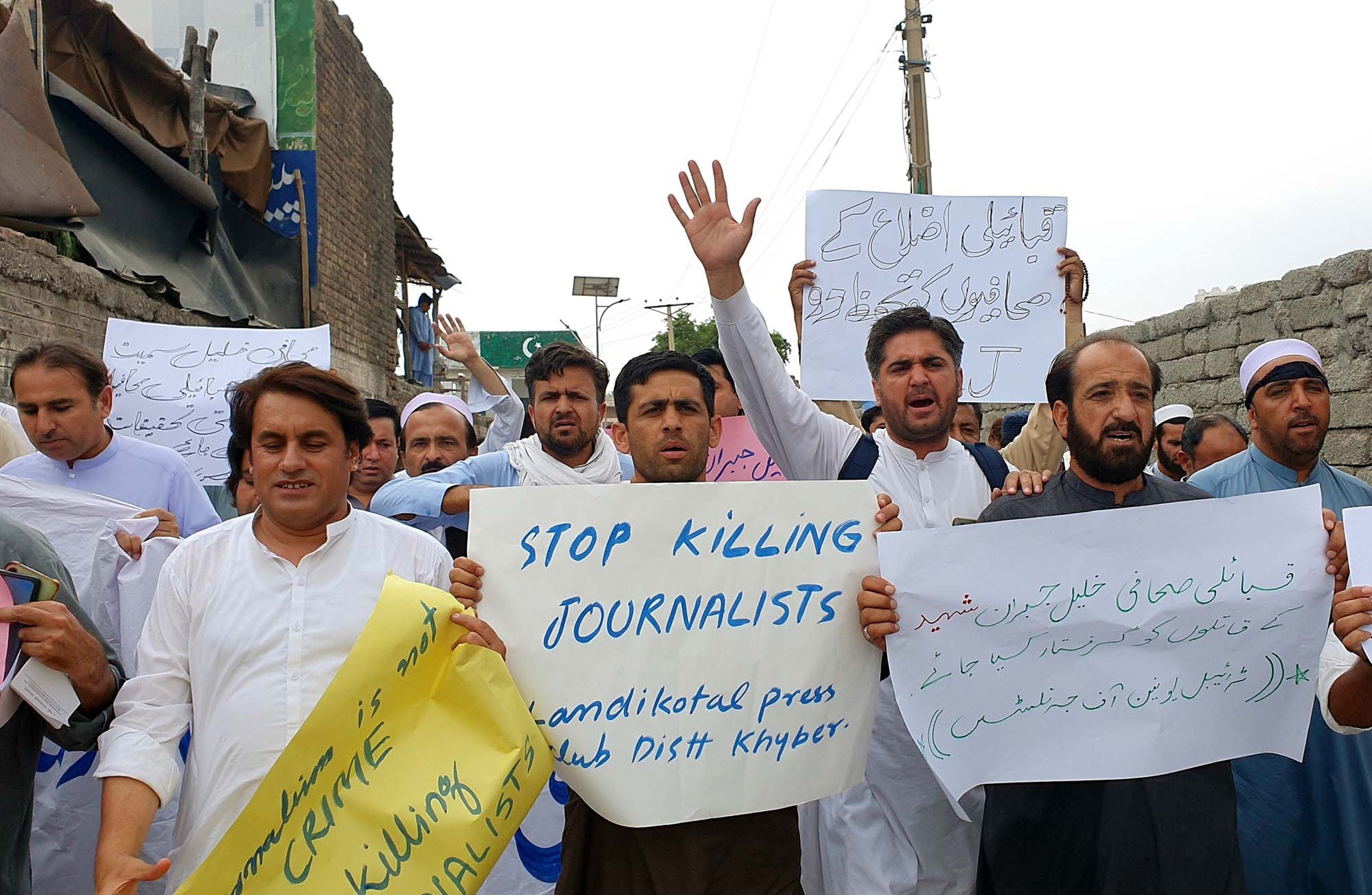Al Jazeera Journalism Review
Freedom of the Press in Jordan and Unconstitutional Interpretations
Since the approval of the Cybercrime Law in Jordan, freedom of opinion and expression has entered a troubling phase marked by the arrest of journalists and restrictions on media. Musab Shawabkeh offers a constitutional reading based on interpretations and rulings that uphold freedom of expression in a context where the country needs diverse opinions in the face of the Israeli ultra right wing politics.
Voting in a Time of Genocide
The upcoming U.S. presidential election occurs against the backdrop of the ongoing genocide in Gaza, with AJ Plus prioritising marginalised voices and critically analysing Western mainstream media narratives while highlighting the undemocratic aspects of the U.S. electoral system.
Journalists Should Not Embrace the Artificial Intelligence Hype
What factors should journalists take into account while discussing the use of AI in the media?
A Year of Genocide and Bias: Western Media's Whitewashing of Israel's Ongoing War on Gaza
Major Western media outlets continue to prove that they are a party in the war of narratives, siding with the Israeli occupation. The article explains how these major Western media outlets are still refining their techniques of bias in favor of the occupation, even a year after the genocide in Palestine.
A Half-Truth is a Full Lie
Misinformation is rampant in modern conflicts, worsened by the internet and social media, where false news spreads easily. While news agencies aim to provide unbiased, fact-based reporting, their focus on brevity and hard facts often lacks the necessary context, leaving the public vulnerable to manipulation and unable to fully grasp the complexities of these issues.
Testimonies of the First Witness of the Sabra & Shatila Massacre
The Sabra and Shatila massacre in 1982 saw over 3,000 unarmed Palestinian refugees brutally killed by Phalangist militias under the facilitation of Israeli forces. As the first journalist to enter the camps, Japanese journalist Ryuichi Hirokawa provides a harrowing first-hand account of the atrocity amid a media blackout. His testimony highlights the power of bearing witness to a war crime and contrasts the past Israeli public outcry with today’s silence over the ongoing genocide in Gaza.
Anonymous Sources in the New York Times... Covering the War with One Eye
The use of anonymous sources in journalism is considered, within professional and ethical standards, a “last option” for journalists. However, analysis of New York Times data reveals a persistent pattern in the use of “anonymity” to support specific narratives, especially Israeli narratives.
India and Pakistan; Journalists building Bridges for Understanding
Amid decades of tension, journalists from India and Pakistan are uniting to combat hostile narratives and highlight shared challenges. Through collaboration, they’re fostering understanding on pressing issues like climate change and healthcare, proving that empathy can transcend borders. Discover how initiatives like the Journalists' Exchange Programme are paving the way for peace journalism and a more nuanced narrative.
From TV Screens to YouTube: The Rise of Exiled Journalists in Pakistan
Pakistani journalists are leveraging YouTube to overcome censorship, connecting with global audiences, and redefining independent reporting in their homeland.
How AI Synthesised Media Shapes Voter Perception: India's Case in Point
The recent Indian elections witnessed the unprecedented use of generative AI, leading to a surge in misinformation and deepfakes. Political parties leveraged AI to create digital avatars of deceased leaders, Bollywood actors
The Rise of Podcasting: How Digital Audio Is Revolutionising Journalism
In this age of digital transformation and media convergence, podcasts stand out as a testament to the enduring power of journalism—a medium that transcends borders, sparks conversations, and brings the world closer together.
Under Fire: The Perilous Reality for Journalists in Gaza's War Zone
Journalists lack safety equipment and legal protection, highlighting the challenges faced by journalists in Gaza. While Israel denies responsibility for targeting journalists, the lack of international intervention leaves journalists in Gaza exposed to daily danger.
Your Words Are Your Weapon — You Are a Soldier in a Propaganda War
Narrative warfare and the role of journalists in it is immense; the context of the conflict, the battleground has shifted to the realm of narratives, where journalists play a decisive role in shaping the narrative.
The Privilege and Burden of Conflict Reporting in Nigeria: Navigating the Emotional Toll
The internal struggle and moral dilemmas faced by a conflict reporter, as they grapple with the overwhelming nature of the tragedies they witness and the sense of helplessness in the face of such immense suffering. It ultimately underscores the vital role of conflict journalism in preserving historical memory and giving a voice to the voiceless.
Journalism in chains in Cameroon
Investigative journalists in Cameroon sometimes use treacherous means to navigate the numerous challenges that hamper the practice of their profession: the absence of the Freedom of Information Act, the criminalisation of press offenses, and the scare of the overly-broad anti-terrorism law.
